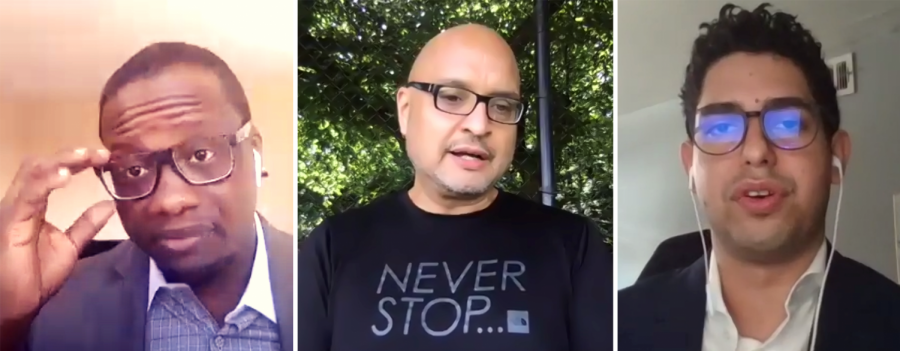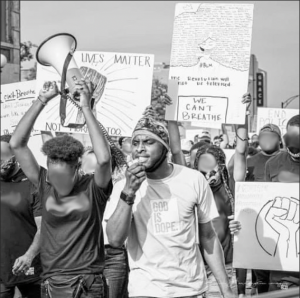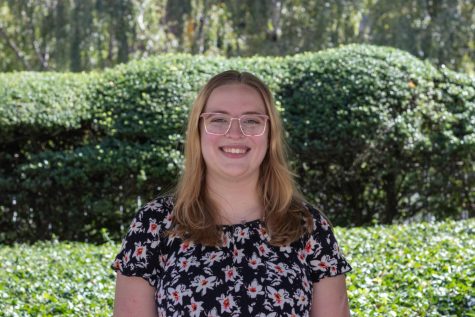Gabelli Students and Faculty Discuss Racial Solidarity
ZOOM
Clarence Ball, Rafael Zapata and Daurys Gonell were among the speakers at the Gabelli event, which focused on discussing diversity initiatives and resources for Fordham.
June 24, 2020
Amid protests occurring around the world, Fordham’s Gabelli School of Business (GSB) came together to address the changes that the institution plans to implement going forward. The Zoom town hall held on June 15 discussed the history of racism, racial solidarity and student resources.
The event was moderated by Dean of GSB Donna Rapaccioli. She was joined by Professor Clarence Ball and Chief Diversity Officer Rafael Zapata.
Students on the call wanted to know how Fordham plans to welcome and include students of color in the future. All of the questions were asked anonymously, and one student asked, “As a largely white school, students of color and their families may feel marginalized or unwelcome. What is planned to change this?”
Zapata replied, “It’s pretty simple. We need to identify and attract and retain and support the success of more Black and Latinx students, faculty and staff.” For the Class of 2023, the ethnic breakdown of students was 55% white and only 4% Black and 16% Latinx.
Throughout the call, current and former students took part in the discussion by telling personal stories and giving students resources. Co-President of the Diversity, Equity and Inclusion (DEI) Board Daurys Gonell, Gabelli School of Business at Rose Hill (GSBRH) ’21, explained the program they have put in place through the Center for Community of Engaged Learning (CCEL).
CCEL seeks to inspire students to learn from their local communities. In the program Gonell highlighted, Fordham students visit Aquinas High School and Cardinal Hayes High School and encourage students to attend a university, even if it is not Fordham, Gonell explained.
“We then funnel them into the DEI mentorship program … and that is where we focus on making students, especially incoming students into the Gabelli school, feel more comfortable, at home,” Gonell said. “We match them with a mentor who can give them all of the right resources and also give them a voice with administration.”
Another anonymous student asked what Fordham is doing to increase staff diversity. Zapata stated that he, along with Rapaccioli, is looking to expand the diversity of candidate pools by expanding the time in which they conduct searches. According to Zapata, this has already successfully been done in the College of Arts and Sciences.
Ball explained that Fordham has partnered with many Fortune 500 companies in order to make sure they then successfully retain faculty and staff. Some initiatives include a workshop with Ernst and Young, and PricewaterhouseCoopers donated $10,000 to ensure that faculty has diverse examples for assignments, according to Ball.
President of ASILI Diontay Santiago, GSBRH ’21, explained the ways that ASILI plans to create resources for students. Santiago stated that their “main mission is to create spaces for minority students and resources for them to be able to refer to other people on campus.”
Zapata informed students who are trying to educate themselves that there is a Google Doc of educational resources for students to use and add to if they wish. He added that there may be a reading group this summer.
The call ended with a reference to how white allies can help and avoid “performative allyship,” or surface-level activism. Gonell emphasized the importance of amplifying the voices of people of color and Santiago explained the necessity to be actively anti-racist.
“To be an ideal ally, it is about taking yourself out of your own comfort zone and being able to place yourself in the shoes of somebody else and working toward getting rid of their own issues,” Santiago said.















Martin Holder • Jun 30, 2020 at 5:55 pm
Aquinas is closing after the 2020-2021 academic year.Enrollment went from 800 to 200.A huge loss.Tuition was the issue